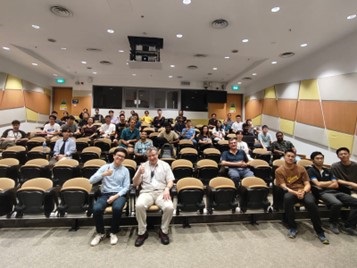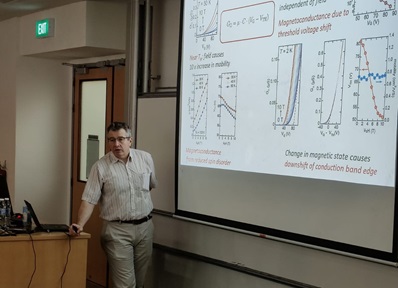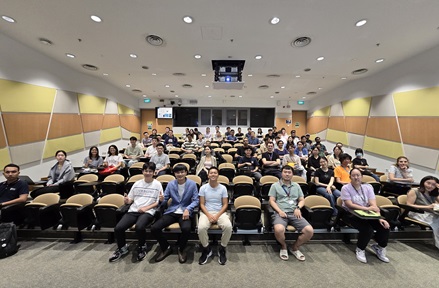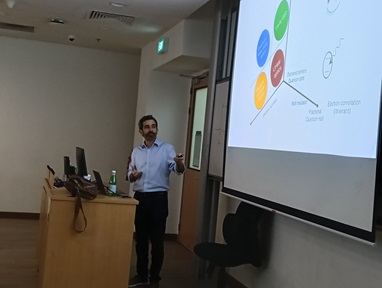Machine Learning Methods to Predict Symptoms of Schizophrenia and Depression from Behavioral Cues
IAS@NTU STEM Graduate Colloquium by Assoc Prof Justin Dauwels
The colloquium webinar was jointly organised by IAS and the Graduate Students' Clubs of EEE, SCSE and SPMS.
Prof Justin Dauwels, an Associate Professor from Delft University of Technology, gave an interesting talk to the NTU student community on 27 September 2021. In his talk, he applies artificial intelligence in the context of mental health, in particular the patients suffering from schizophrenia and depression.
Many people around the globe suffer from mental illness at some point of time. In fact, in recent pandemic times, the situation has worsened with more people stressed than ever. Most of these people do not visit psychiatrist for different reasons, the primary one being social stigma. However, all of us realise the importance of a good mental health. So, there is need for tools that can provide the holistic assessment of symptoms of mentally ill people.
Prof Dauwels' team took a step forward in this direction and performed an observational study of 103 schizophrenic patients, 50 depressed patients and 75 healthy participants. Using social signals like speech, facial expression and body movements, he explored its connection with the characteristics of different types of mental illness. Leveraging on audio-visual cues, he established the correlation between these social signals and the severity of symptoms. He also developed a machine learning model that can detect overall and specific expression-related negative, cognitive, and general psychiatric symptoms at a balanced accuracy (BAC) of at least 75%, and to distinguish schizophrenia and depression patients from healthy participants (BAC > 82%).
Overall, these results suggest that machine learning models leveraging audio-visual characteristics can help diagnose, assess, and monitor schizophrenia and depression patients with negative, cognitive, and general psychiatric symptoms. The model can further be translated to tools (apps/robots etc) for long-term assessments of mentally ill people and evaluation of treatments for them.
Shivam Mahajan | SPMS Graduate Students’ Club







